There are many things to enjoy in the Royal Opera’s revival of Donizetti’s Don Pasquale, but perhaps the most surprising is that the director plays it straight. This was my first encounter with Damiano Michieletto’s newish (2019) staging, and the plan was to approach it without preconceptions. (If we’re about to experience, say, a Bold Feminist Re-Imagining, I’d prefer to deduce it from the evidence on stage.) But for an opera premièred in 1843, Don Pasquale is distinctly old-school, with all its commedia dell’arte assumptions intact and whirring away like clockwork. The elderly miser Don Pasquale disinherits his lovelorn nephew and marries a compliant young bride who instantly becomes an abusive shopaholic scold. Naturally, it’s all a ruse, designed by the statutory wily servant (here, a doctor) to unite the young lovers and teach the old fool to act his age. Surely no culturally-savvy director is going to let us find that funny in 2022?
Actually, Michieletto does. True, it’s updated, but the plot requires Don Pasquale to dress in outdated fashions and unless you really know your knee breeches from your pantaloons, how better to show that than with a pink tie and a check blazer? Paolo Fantin’s set removes the walls but not the doors from Don Pasquale’s bungalow, so we can observe the to-ings and fro-ings of his silent, Mrs Overall-like maid. We see the cosy squalor of his bachelor lifestyle, and cringe with him when his new wife bins the lot in favour of monochrome minimalism (out goes the vintage Fiat; in comes a phallic Maserati). His fake bride Norina, meanwhile, works as a lowly dresser in a fashion studio: cue a lot of fun with greenscreen projections, meshing neatly with a plot that’s driven by costume and illusion. Plus in Act Three there are singing Muppets, and if it’s feelgood comedy you’re after, you can’t go wrong with Muppets.
There’s likeability to spare in the human cast, too, and some proper bel canto flair from both Andrzej Filonczyk as Doctor Malatesta (plausible, but not too plausible, in a leather jacket and shades) and Xabier Anduaga as Ernesto: a drip in a polo shirt, who pours out those long, caressing tenor phrases like a juicy Rioja. Giacomo Sagripanti, conducting, is suave, stylish and occasionally prone to taking liberties – a saucy little slide, or a flash of woodwind sunlight. He’s entirely supportive of the two central characters: Lucio Gallo (Don Pasquale) who does a sonorous and surprisingly expressive line in querulous bluster, and Pretty Yende, who’s a joy from beginning to end as Norina. She’s flirtatious, she’s playful; up for the fun but always elegant, and singing with a sunkissed sweetness that glitters without being forced, before melting into a wonderfully tender and expressive pianissimo.
In truth, it’s all so affectionate that it feels grossly unfair to suggest that the audience’s laughter was appreciative rather than unconstrained, that (without any visible or audible carelessness) the comic gears seemed a bit loose on their axles, and that perhaps Don Pasquale isn’t really a feelgood comedy at all; at least, not in the modern sense. Pasquale is a Malvolio figure, suspended between pomposity and pathos, but Gallo never felt overbearing enough to be worth deflating. At one point, Michieletto introduces a child dressed as a mini-Pasquale. We see him being tucked into bed by his mother, and the balance of sympathy tilts in his favour – fatal to a comedy whose fizz comes from a precisely calibrated microdose of neat cruelty. A buffofarce should sting a bit: Michieletto gives us Muppets. Still, it’s a delicate line to walk, and it’s no criticism of Gallo to say that the whole thing might snap into a very different sort of focus when Bryn Terfel assumes the title role later in the run.
Big Bryn, meanwhile, has been singing Wagner in Oxford. The ongoing survival of a professional orchestra outside of a major conurbation is remarkable in itself, but the Oxford Philharmonic’s players include some serious A-listers – such as the oboist Clara Dent, who gave a touching performance of Strauss’s Oboe Concerto. The orchestra, under Marios Papadopoulos, sounded shaky at first but came roaring into form once Terfel walked out to sing Hans Sachs’s elderflower monologue from Die Meistersinger and the closing scene from Die Walküre. He dropped straight into character: that noble voice might have lost some of its former richness, but Terfel’s outsize stage presence, and the understanding that he put into each word (his voice almost buckled with pain on the line ‘des Lebewohles letztem Kuss’), made the floor of the Sheldonian feel, briefly, like the centre of the world. The spell even survived Terfel’s surprise appearance in the Proctor’s box, brandishing a spear, for the Magic Fire sequence. ‘Over-the-top’ doesn’t really apply to artistry as grand, and as generous, as Terfel’s.
Got something to add? Join the discussion and comment below.
Get 10 issues for just $10
Subscribe to The Spectator Australia today for the next 10 magazine issues, plus full online access, for just $10.
You might disagree with half of it, but you’ll enjoy reading all of it. Try your first month for free, then just $2 a week for the remainder of your first year.

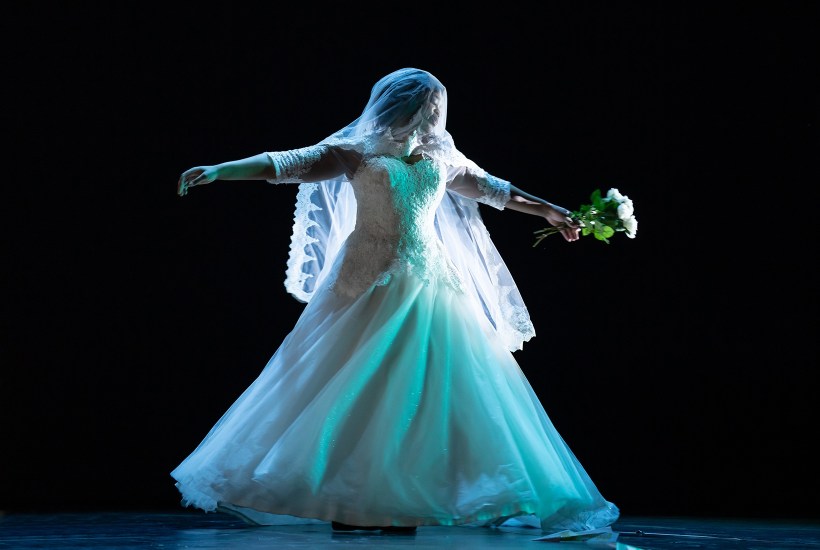
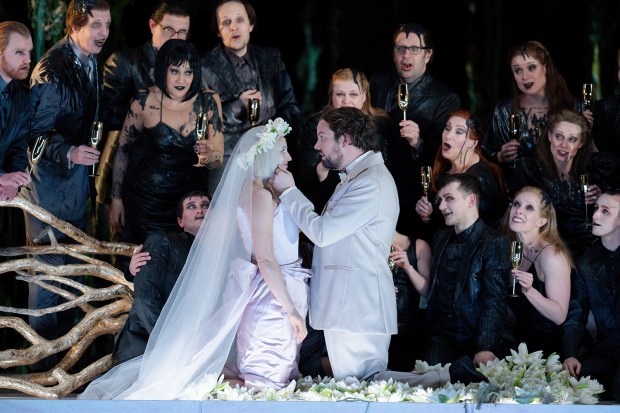
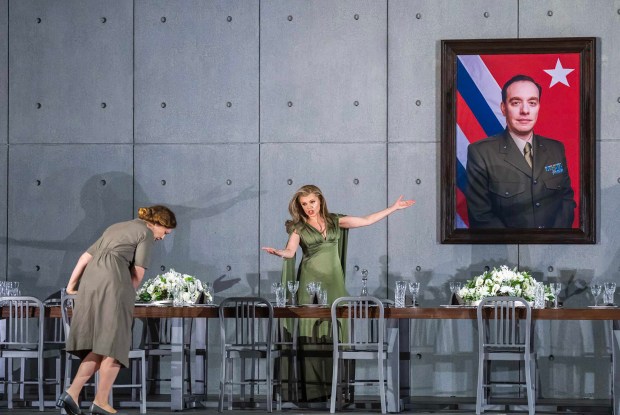
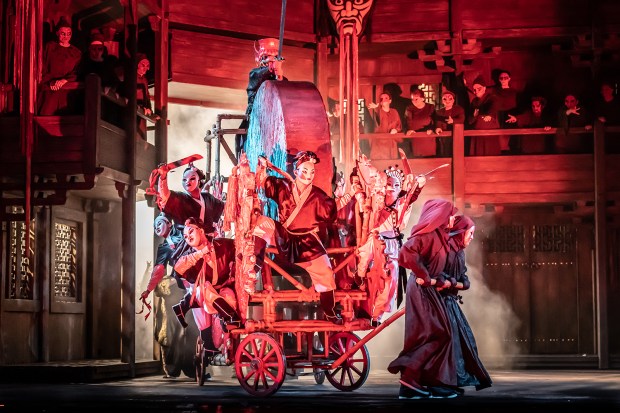
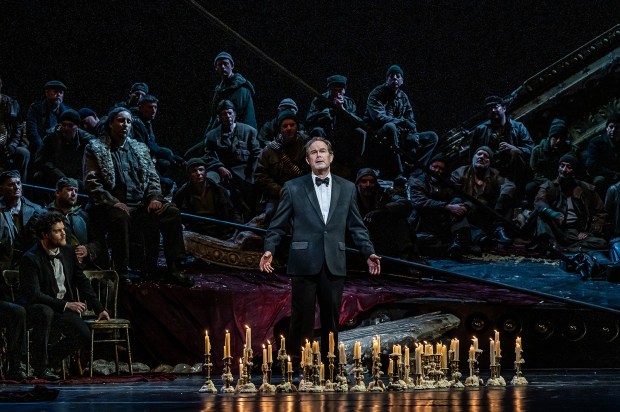
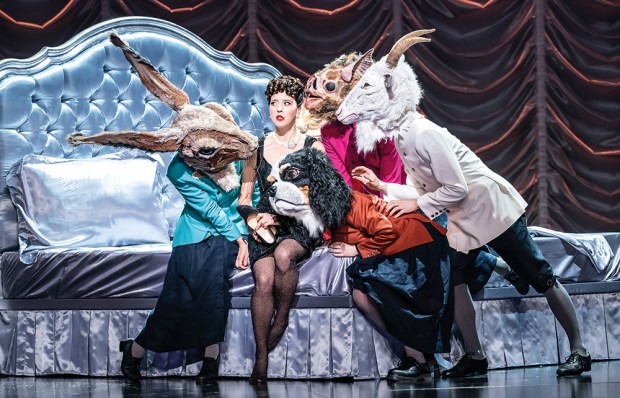
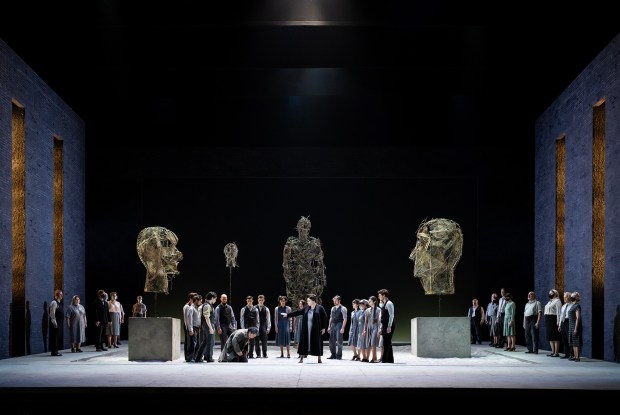






Comments
Don't miss out
Join the conversation with other Spectator Australia readers. Subscribe to leave a comment.
SUBSCRIBEAlready a subscriber? Log in